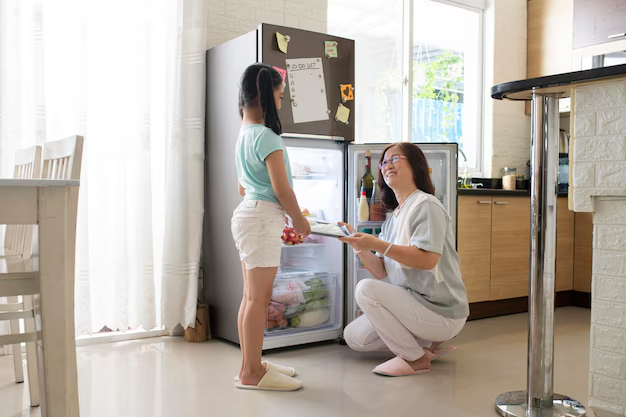Is Plugging a Refrigerator Into a Surge Protector a Good Idea?
Imagine this: You're in the middle of preparing dinner when suddenly a storm hits, and a power surge threatens your refrigerator and its contents. This scenario leads many to wonder whether it's wise to plug a refrigerator into a surge protector. While simple in concept, this topic invites a deeper dive into the dynamics of electricity, appliance protection, and user safety. Let's explore the full breadth of this question and help you make the most suitable choice for your home and appliances.
Understanding Surge Protectors and Their Function
What Is a Surge Protector?
A surge protector acts as a shield for your appliances against electrical spikes. These are brief surges of voltage, often caused by events like lightning strikes or power grid switching, that can damage sensitive electronics. Surge protectors divert excess electricity away from devices, minimizing the risk of harm.
How Do Surge Protectors Work?
Surge protectors typically utilize a component called a Metal Oxide Varistor (MOV). This component absorbs excess voltage and prevents it from passing through to connected devices. If the voltage exceeds a safe threshold, the MOV reroutes the excess to the ground wire, sparing your appliances from the excessive current.
Do Surge Protectors Last Forever?
Most surge protectors have a finite lifespan. Each voltage spike slightly degrades the MOV, and over time, its effectiveness reduces. Usually, an indicator light on the device tells you if it’s still functional. Checking this is crucial to ensure continued protection for your appliances.
Considering the Compatibility
Can Refrigerators Be Plugged Into Surge Protectors?
Refrigerators, as essential household appliances, pose a special case when considering surge protector use. Generally, surge protectors are suitable for devices with smaller energy demands, such as computers and televisions. However, refrigerators operate on a different wattage and energy cycle, creating some considerations.
Refrigerators draw significant power, especially when their compressors start. This high-wattage demand often outstrips the capability of many standard surge protectors. Consequently, using an inadequate protector could inadvertently lead to power issues or even device failure. Therefore, if choosing this route, ensure the surge protector supports the power requirements of your refrigerator.
Risks of Using Inappropriate Surge Protectors
Using a surge protector that can't handle the load can result in:
- Overheating: Persistent excess energy can cause the protector to overheat and potentially become a fire hazard.
- Interruption: An inadequate protector may trip frequently, causing more harm than good, and disrupting the refrigerator's cooling cycle.
- Premature Wear: Repeated electrical interruptions can lessen the appliance's lifespan by overworking its components.
Alternatives and Smart Practices
Using Dedicated Surge Suppression
Opt for a dedicated surge suppressor designed specifically for larger appliances. These devices fit directly into the circuit panel and protect against surges affecting high-wattage devices like refrigerators and washers.
Installing Whole-House Surge Protectors
If protection is a broader concern, consider a whole-house surge protector. This system connects to your electrical service panel and shields all home circuits from voltage spikes. Such a solution offers robust protection but requires installation by a qualified electrician.
Understanding Electrical Draw
Different refrigerators have varying wattage demands. Consult your refrigerator's manual to ascertain its wattage and compare this with the capacity of any surge protector under consideration. This evaluation aids in ensuring compatibility and effective protection.
Key Considerations: Tips for Safe Appliance Use 🔍
- 🔌 Check Compatibility: Ensure the surge protector can handle your refrigerator’s power requirements.
- ⚡ Regularly Inspect Surge Protectors: Monitor the indicator lights and replace when no longer functional.
- 🏠 Consider Whole-House Protection: If storms or electrical inconsistencies are frequent, a whole-house option might offer better peace of mind.
- 👨🔧 Professional Installation: For all complex electrical installations, lean on professional electricians to ensure safety and compliance.
- 📄 Review Warranties: Some surge protectors offer equipment warranties which could provide additional peace of mind if deemed suitable.
Worthwhile Alternatives to Surge Protectors for Refrigerators
Relocating Power Sources
In some cases, either relocating your refrigerator closer to a dedicated outlet or moving the outlet itself can make a difference. This minimizes the chance of tripping other devices on the same line, thus maintaining constant power flow.
Investing in Voltage Stabilizers
Consider voltage stabilizers for more volatile power scenarios. These devices regulate voltage levels actively, ensuring the refrigerator receives a consistent power supply with minimal fluctuation.
Exploiting Smart Technology
Smart plugs or outlets exist that monitor energy draw and help diagnose potential issues in advance. These devices come integrated with features that shut off power in case of surges or overstressed circuits.
A Precautionary Note on Safety Practices
Safety First: Before Installation
Before installing or considering any solution, ensure all appliances and electrical products comply with national safety standards. Look for labels indicating compliance with organizations like Underwriters Laboratories (UL).
Avoid Daisychaining
Daisychaining is a practice where multiple extension cords or surge protectors are connected together. This setup heightens the risk of electrical failure and fire hazards. For heavy appliances like refrigerators, aim to utilize single, direct connections to the appropriate outlet.
Final Consideration and Insight
In evaluating whether to connect your refrigerator to a surge protector, consider power dynamics, potential risk factors, and available alternatives. Individual needs and household energy circumstances greatly determine the best solution here. What's most important is striking a balance in protecting both your appliance's health and the integrity of your household's electrical system.
Ultimately, decision-making surrounding appliance protection falls within every homeowner's strategy for ensuring longevity and reliability. Equipped with the correct information, you can take steps toward creating a safer, more efficient home environment.

